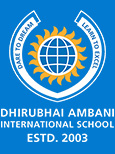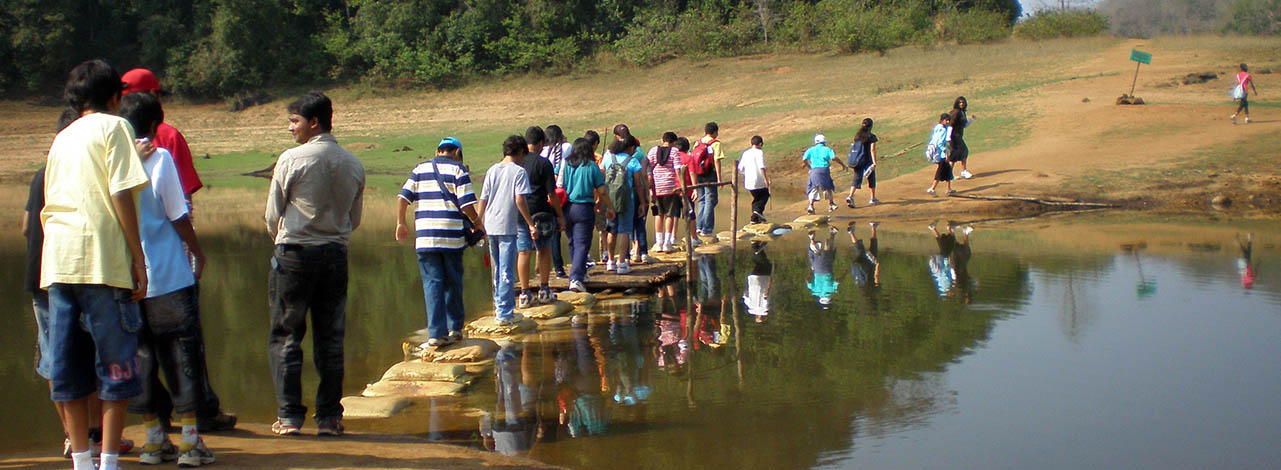Indo-Czech Exchange trip to Hassachipatti
The DAIS Indo-Czech exchange took place from the 16th of March 2012 and lasted until the 30th of March. After a two day interlude in Mumbai city, the teams set off for the Service part of the trip, working on the Village Project. Along with the Czech students, we had students from DAIS from Years 11 and 9.
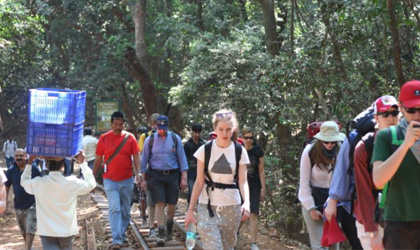
The plan was to start at Matheran and then move on to Patalganga. Bright and early on the morning of the 18th, we were off. For the duration of our stay at Matheran, we were accommodated at our own School Co Curricular center. After a quick lunch and a chance to refresh ourselves, we set off to do some work!
Since we’d been up early and had spent the better part of an hour walking to the hotel, we decided not to go down into the village. Instead, we worked on the path to the village. The steep, winding path to the village is a mud path, which can be quite dangerous at times. Our aim was to cut steps into the path and concretize them, so that the villagers have a more comfortable access road throughout the year. The students quickly organized themselves into a human chain to transport the cement and water up and down the slope. It was really fun to watch them get into the spirit of things. Work moved quickly and they were able to finish quite a few steps before we wrapped up for the evening.
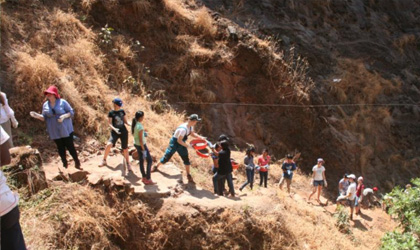
Days 2 and 3 saw us trekking all the way down to the village. One team stayed halfway up to finish working on the steps, while the other two teams took up work on the Computer Laboratory and the Water Harvesting Pit. The Computer Lab was built with the intention of allowing students of the village to expand the horizons of their learning by having access to the same resources the rest of the world does.
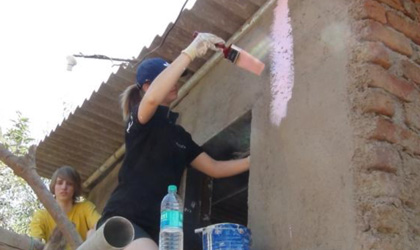
Since the structure of the lab was largely complete, all that was left was to refine it. We started plastering the inner walls in preparation for painting. Two outer walls required plastering while the other was ready for painting. By the end of the Matheran leg of the trip, we had painted the inside and outside walls and got most of the wiring in place for the computers themselves.
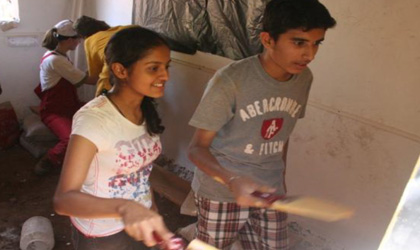
Rainwater harvesting is another issue of importance in rural India. The monsoons go a long way toward restoring our natural water table; however, very often this is not always accessible to those who need it. The rainwater harvesting pit we’ve dug has a capacity of 70,000 litres. This should serve the village well between monsoons. The team working on the pit was concerned with covering the pit to prevent sunlight from reaching the water surface as sunlight allows bacteria formation.
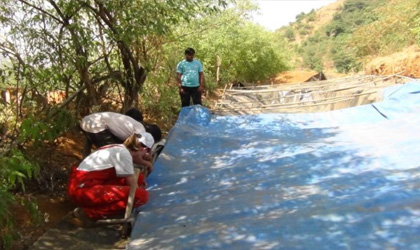
At the end of 3 days in Matheran, the fruits of our handiwork were there for all to see. The computer lab stood, practically complete and the water harvesting pit was safe under its new cover. We were able to appreciate the new steps we'd made as we trekked back up to the hotel. And it wasn't just the construction work we were proud of; it was also the work that went in to building solid lasting friendships with people from a new culture and sharing our perspectives through the platform of hard work.
